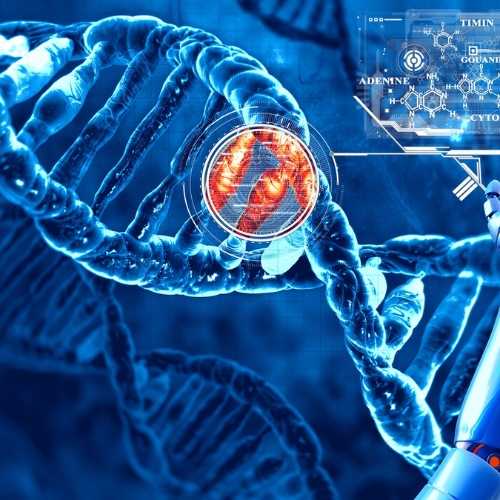Live Longer with AI
By Tina Woods - How artificial intelligence is helping us extend our healthspan and live better too
Live Longer with AI examines how the latest cutting-edge developments are helping us to live longer, healthier and better too. It compels us to stop thinking that health is about treating disease and start regarding it as our greatest personal and societal asset to protect.
- Discover how the latest cutting-edge developments in health and AI are helping us live longer, healthier, and better lives
- Personalize your health, wealth and well-being using technology best suited to help you plan and build up your assets for a multi-stage life
- Understand how we can live our best lives in a post-COVID-19 world and equip ourselves for the next pandemic using technology
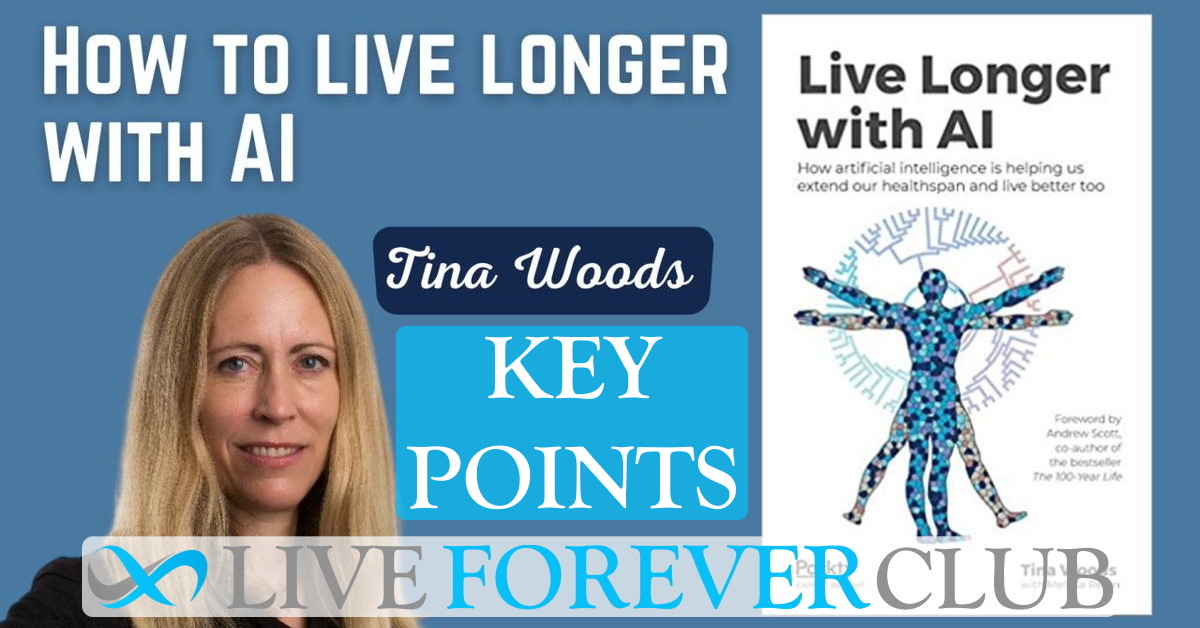
Key Points
Chapter 1: Introduction
in Castilla-Rubio's view, biology will be the most valuable enterprise in the 21st century
eternal youth may soon move out of the realms of myth
potential of multimodal learning to develop predictive and preventative health strategies is colossal
the basic philosophy of Chinese medicine is that prevention of disease and maintenance of health is the main priority of doctors
AlphaFold can predict the innumerable ways in which various proteins fold by analyzing their amino acid sequences
enshrined by General Data Protection Regulation, EU citizens are the custodians of their data and can choose how and with whom to share
in Estoniaover 95% of the data generated by hospitals and doctors has been digitized,
IHAN is the "human" equivalent of the IBAN banking standard
UK set up the Centre for Data Ethics and Innovation in 2018
INTERVIEW: Professor Baron Peter Piot
in Japan and Singapore, people wear a face mask to avoid infecting others
Chapter 2: Who We Are – And What Drives Us
today, most of the AIs we use are "narrow"
people invest in mobile phones, cars and holidays; but neglect their own health
more than 26 million consumers in the USA have added their DNA to four leading commercial ancestry and health databases
DNA tests cannot give you the full picture on your health trajectory
a digital biomarker is a quantifiable measure of a person's physiological and/ or behavioral state
George Church announced that more than 13,000 genetic alterations have been made to a single cell using CRISPR technology
INTERVIEW: Reverend Malcolm Brown from the Church of England
we're coming to maturity in our relationship to AI
we haven't escaped death, but we have forgotten how to talk about it
funerals have moved from a commendation of a soul forward, to a celebration looking back
INTERVIEW: Eddie Hall, World's Strongest Man
has an MSTN gene deficiency, as found in Belgian Blue cows, this breed that just has muscles on muscles on muscles
INTERVIEW: Aubrey de Grey, Chief Science Officer of SENS Research
we're not going to have a post-aging world for another 15 or 20 years at least
we need to actually figure out good ways to cope with a post-work world
we're going to have to give people a whole variety of different treatments, all at the same time
SRF prioritizes areas are being most neglected by the research community and by funders
we've been trying to put backup copies of the mitochondrial DNA into the nucleus
the amount of impact that one can have on one's own longevity with what exists today is certainly pretty limited
50/ 50 chance of getting to longevity escape velocity within the next 17 years or so
the only reason that people are so resistant to the argument is because they don't want to get their hopes up
INTERVIEW: Alex Zhavoronkov, Insilico Medicine
company uses computers to simulate how certain drugs will affect specific tissues
its deep learning system could create new unpatented molecules for a protein target implicated in fibrosis
Living longer is pretty much inevitable at this point
the boundaries between computer science and biotechnology are blurred
Governments aren't prepared for the silver wave
productive longevity will definitely result in unprecedented economic growth
really large corporations take a longer- term view than governments
Drugs to combat muscle wasting will probably be one of the first frontiers in our fight against aging
INTERVIEW: José Cordeiro, Futurist (vice chair of HumanityPlus)
we might actually be able to wire up our brains to a computer and upload our knowledge within the next 20 to 30 years
most of our memories, our ideas, our dreams, and our loves are electrochemical impulses in the brain
not just life extension but life expansion - sometimes called the exocortex
immortality is like infinity - it's hard to imagine and hard to prove or disprove
groups will oppose these developments, some because of religious reasons
think people want to live indefinitely so long as they can be young
With nanotechnology and AI, we might be talking about $ 1 per day of treatment;
now is certainly the worst time to die because we are so close to being basically immortal
INTERVIEW: Keith Comito, Lifespan.io
living extraordinarily long and healthy lives is feasible
this isn't about extending a period of decrepitude
AI can be a vast boon, e.g. isolating findings that maybe humans have overlooked
MouseAge takes a picture of a mouse and knows how well it is biologically aging compared to its chronological
AgeMeter is a smartphone application that will measure various physiological biomarkers of aging like your reaction speed
you really need to bring the public along with you
I believe senolytics has the chance to foment a non-negligible increase in healthy lifespan
if we can age healthier as a society, that has to be a core tenet of any kind of universal healthcare
wouldn't you be a better steward of the earth if you believed that you and your family were going to be around in 500 years?
Chapter 3: Nature versus nurture and the exposome
life expectancy in the UK is lower than in several other European countries, including Italy, France, and Spain
New Zealand is the first western country to make well- being priorities
genetic differences account for more of the psychological disparities between us than everything else put together
we have individual biological patterns of aging — or an "ageotype"
INTERVIEW: Anastasia Georgievskaya, Haut.ai
wrinkles, especially around the corners of your eyes, are very accurate in predicting chronological age
Haut.ai has devised a "photo clock" that can assess your age from a selfie
exposome consists of three overlapping domains
"gait speed" measured at age 45 is still regarded by most as the best predictor of how well you will age in the future
practically every person involved in longevity research does intermittent fasting
Hadza people typically get about two hours exercise daily, mostly from fast walking
Car makers have started developing heart monitoring technology
Smart technologies can enable dementia sufferers to live in their own homes for longer
INTERVIEW: Nir Barzilai, Albert Einstein College of Medicine
the medical costs in the last few years of life for somebody who dies over the age of 100 are a third of those for someone who dies when they're 70
Ageism is really big now; it's one of the biggest "isms" in the world
sales of Metformin from some generic companies have increased by 20% in the last year or two
in the next five years we'll get repurposed existing drugs
the 10-15 year scale is where things will get dramatically better
Rapamycin is not safe in humans yet
with AI and there's a danger of trusting the computer to give you a good answer when you've asked a poor question
our ability to absorb vitamins A, D, E, and K is dependent on the microbiome
doesn't believe in longevity escape velocity
INTERVIEW: Paul Dagum, Mindstrong Health
AI is essentially looking at a lot of data
sharp objective endpoints can assess the impact of a drug
UK program on the early detection of neurodegenerative diseases (EDoN) that is a global initiative developing digital fingerprints for dementia causing diseases
AI would be ideal for finding those patterns and identifying high-risk individuals
INTERVIEW: Thomas Balkizas, Alpha Tech Capital
on Thomas' radar for investments is connectivity
AI is there to support us and not replace us
more than 95% apps fail because they don't help people to make a behavioral change
governments and policy come in like a braking force
for a technology to be successful in the long term, you need to make sure that people trust it
INTERVIEW: Teemu Suna, Nightingale Health
we can measure health markers in your blood and connect them to your daily lifestyle
personalized advice based on the molecular make-up of your blood
Nightingale's technology measures over 200 metabolic biomarkers in a single blood test
uses nuclear magnetic resonance (NMR) technology to analyze blood
AI will play a central role in providing people with the right information that helps them navigate their health
this idea of living to be 200 or living forever is a bit of science fiction
INTERVIEW: Nic Palmarini, National Innovation Centre for Ageing
We are the data that AI needs to become more intelligent and possibly help us live longer
We are in a transition from what is called "narrow AI" to "broader AI" systems
no one can scientifically make a serious promise about general AI today
AI must be able to show its reasoning
I envision a stock exchange of data with prices following market rules
trusted AI is not a slogan, but a commitment to be achieved
we could see the future from very different perspectives if life continues without an expiry date
antacids for our stomach were very expensive 30 years ago, and now you can buy them for few cents
think about ageism as a discrimination that has lethal effects on individuals
Chapter 4: Moving Sickcare to Well-being, Through Prevention
about one in three British adults is clinically obese
holistic view of noncommunicable diseases (NCD) is needed
far more well-being and health can now be gained by preventing illnesses than by treating them
APPGL National Strategy recommended increasing the budget the NHS spends on prevention from 5% to 15% by 2030
AI could monitor and analyze the "health of the community"
diagnostics is one of the best examples of an area where AI can help medicine
First Derm can screen 43 common skin diseases, from STDs to skin cancer using an AI algorithm
AI is being used to identify patients at risk of unplanned hospital admissions
AI is disrupting the drug discovery and development processes
medicine that is predictive, preventive, personalized, and participatory is called "P4 medicine"
data that is findable, accessible, interoperable, and re-usable (FAIR)
to collect data at scale we need to have public trust and data sharing structures that empower citizens
citizens donate their data for ethical research - "data philanthropy"
we need to move beyond data in healthcare, and study data from healthy people
the public are increasingly uneasy about Big Tech getting ever more involved in our lives, including health
INTERVIEW: Carol Routledge, Small Pharma
AI facilitates what we are all doing
in 15 to 20 years we will have a digital tool that detects diseases that cause dementia one to two decades earlier than we can now
we still don't absolutely know what triggers neurodegenerative diseases
genetic variants exist that affect the likelihood
higher cognitive reserve may be linked to a slower onset of dementia
INTERVIEW: Shafi Ahmed, Futurist
AI will make healthcare around the world more affordable, more accessible, and more equitable
AI will be the main disruptor of healthcare in the next 10- 20 years
AI will improve outcomes for every patient with data driven care that is both personalized and more precise
able to assimilate the information from millions of patients around the world
INTERVIEW: Indra Joshi, NHSX
government have set up an Office of AI that sets the strategic direction for AI across the sectors
we need to focus on well-being and keeping healthy
£250 million AI fund was just announced for the NHS
I don't think there'll ever be a single intervention to cure aging
you could have an AI agent in the emergency room call out things that you might not consider
INTERVIEW: Michelle Hawkins-Collins, Aging-well activist
people need to understand that they're already living longer with AI
good governance is needed to reduce some of the fear around AI technology
We need a single interface but competition is precluding the collaboration
AI could help identify what will be the most effective behavioral change approach for a particular individual
government will play a key role in creating the conditions for AI development and diffusion
Deep learning identified air pollution as a key predictor of mortality
INTERVIEW: Sue Brayne, Author
I personally disagree with the pursuit of longevity alone or immortality
INTERVIEW: Bertalan Meskó, Medical Futurist Institute
it's physically impossible to know everything with 31 million medical papers out there
in Estonia, people aged 80 get a DNA report to prevent diseases from happening
we have been cultured into considering ourselves as passive components of healthcare
technology should not be the focus
the first person who will live until 130 is certainly alive right now
Chapter 5: Building up Assets for the 100- Year Life
a net household worth of £ 488,000 by the age of 50 adds nine years to your life
many people currently in their mid-40s are likely to need to work into their early to mid-70s
as we have been living longer, the years added to our lives have been in the middle, and not at the end
people potentially run out of pension savings some 8- 20 years before they die
Lemonade is a new type of insurer well known for its speed, issuing policies and paying claims in a matter of minutes using AI
health is 10 years behind the climate change agenda
with data, the more you share it, the more valuable it gets
hubs leveraging multimodal AI can be of significant commercial value
raising regulatory costs deters competitors and AI's lock-in loop benefits incumbents
corporate secrecy is a major barrier to social science research
MIT researchers trained a deep neural network to screen more than a hundred million chemical compounds in a matter of days, designed to pick out potential antibiotics that kill bacteria using different mechanisms than those of existing drugs
INTERVIEW: Sergey Young, Longevity Vision Fund
goal is to live to 200 and help others do the same
AI can diagnose certain types of cancer better than doctors alone
companies which use AI will have a disproportionate competitive advantage
first big impact will be that AI will help to make medicine more personalized
INTERVIEW: Dmitry Kaminskiy, Deep Knowledge Group
AI assistance will not only help us to optimize our lifestyles, but delay and prevent different issues with our health
the quantity of data that we can gather about people will increase exponentially
the efficiency of AI algorithms will also increase exponentially
INTERVIEW: Brian Kennedy, National University of Singapore
we're going to intervene and keep people healthy for longer in the very near future
a US hospital declined to give any money because success in this area was going to reduce its procedures by 60%
30% of people get cancer and we try to do something about that. 100% of people age, but we see that as something natural.
in animals we're using AI to optimize the dose of a drug or a supplement in each animal as it gets older
INTERVIEW: Nishikawa Kazumi, WEF Global Future Council on Longevity
AI and the IoT and big data analysis can help you to understand your health
all over the world 20% or 30% of people seem to be health geeks
there's a trend for companies to see health as an asset that you need to invest in
poor health decreases the Japanese GDP by 7%
lifestyle-related data is the key for success in healthcare
the number of elderly people in Japan working late in life is increasing
INTERVIEW: Siddhartha Chaturvedi, Microsoft
AI is a tool that amplifies other things you can do
AI's becoming much more accessible to domain experts - you don't have to be a developer
Internet of Medical Things (IoMT) could potentially understand what your baseline is
with InterpretML you can see which factors weigh on a particular outcome
Chapter 6: Conclusion
tackling obesity at a population level requires making the healthy choice the easy choice
living longer is linked to living greener
data is the richest renewable resource on earth
technology can help you - and sharing your data for the common good can help everyone else too
Details last updated 18-Oct-2020
Mentioned in this Resource
Alex Zhavoronkov
CEO of InSilico Medicine & Deep Longevity. CSO of Biogerontology Research Foundation
Live Longer with AI is also referenced in the following:
ARDD 2021 - 8th Aging Research and Drug Discovery Meeting
31-Aug-2021 to 03-Sep-2021
Online event about latest progress in the molecular, cellular and organismal basis of aging organized by University of Copenhagen chaired by Morten Scheibye-Knudsen, Daniela Bakula and Alex Zhavoronkov, and with many speakers.
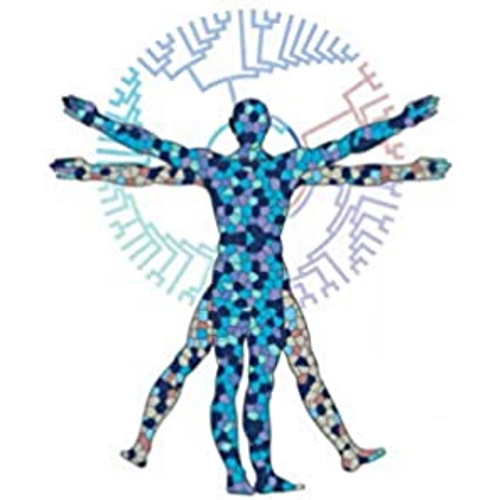

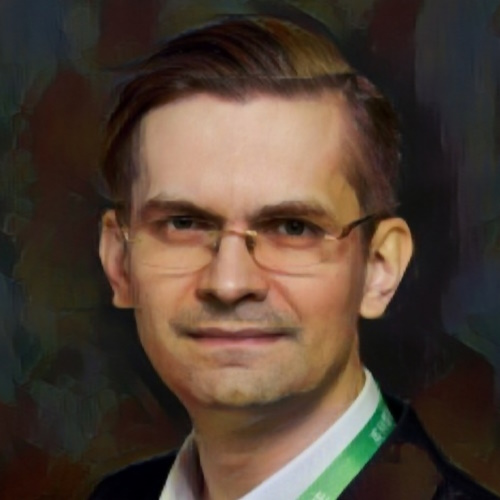
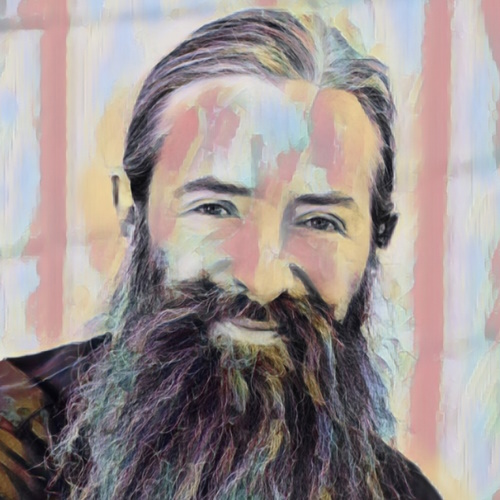

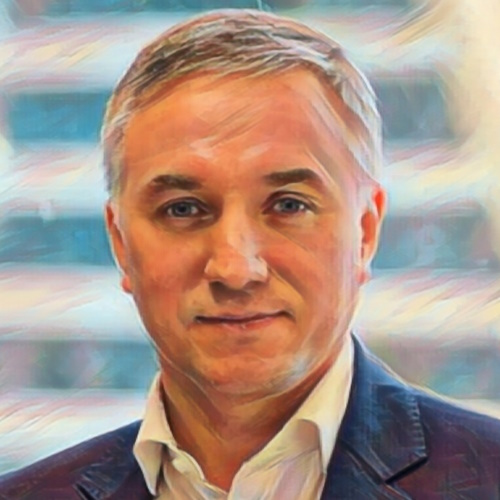
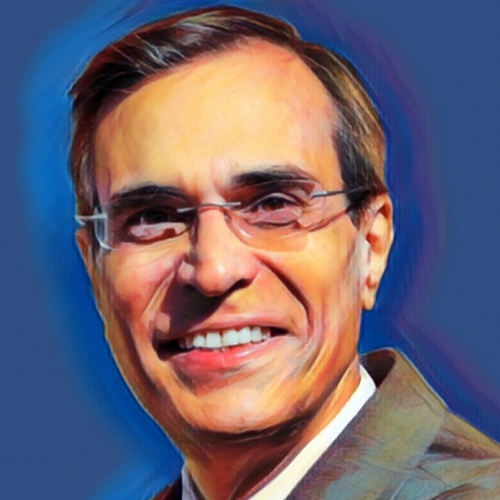
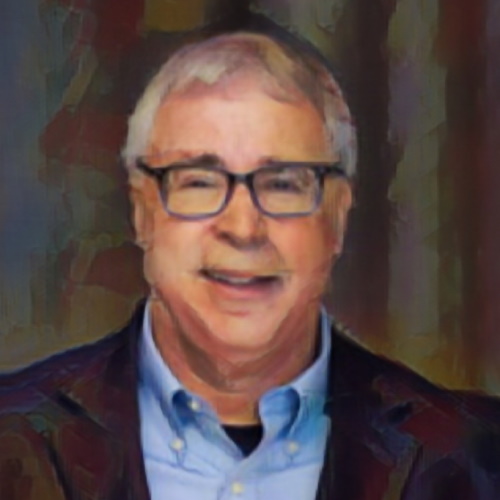
-thumbnail-AC.jpg)
